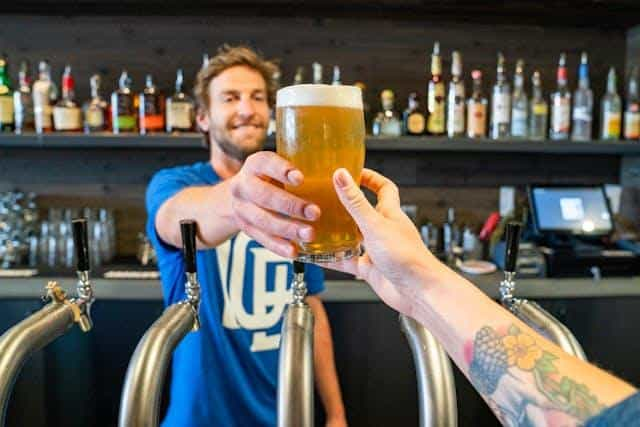
If you’ve ever lived abroad, you know that customer service can say a lot about a country and its culture. In Serbia, it says Relax, we’ll get there eventually. Or, it tells you to come back tomorrow when you’ve already been there three times. So, yes, dealing with Serbian customer service can be a wild ride and a test of your patience.
But here’s the secret: Serbian customer service isn’t bad — it’s different. It operates on its own logic, shaped by the local love for improvisation and distaste for strict rules. Once you learn how it works (and how to laugh about it), you’ll survive just fine — and maybe even enjoy it.
Describing Serbian customer service as top-notch would be misleading. And you’ll realize it right at your arrival.
Not later than you reach the airport, you’ll probably meet the sullen face of an immigration clerk welcoming you with silence. Obviously, friendly greetings and warm smiles aren’t part of the job training.
Enter a supermarket, and you may find cashiers chatting among themselves and ignoring you while checking out your items. Again, it may seem that smiles, hellos, and thank-yous are in short supply.
Get on a bus, and you may notice that the driver is making phone calls, cursing loudly, or smoking. Yes, smoking!
Clearly, the customer isn’t always the king in Serbia. So, how do locals deal with all that?
While you may experience a full-blown culture shock at how customers are treated around here, Serbs see it differently.
In Serbia, people value honesty more than artificial politeness. Being direct and to the point often trumps niceties. So if your cashier doesn’t beam at you like a toothpaste ad, don’t take it personally.
Still, help usually comes when you need it — even with the grumpies-looking staff. All you need to do is ask for it.
Chances are, you’ll get what you need, plus a few bonus life stories about the clerk’s cousin’s neighbor who once had the same problem. Serbs may not always smile, but they often go the extra mile once they warm up to you.
No article about Serbian service would be complete without mentioning bureaucracy — the ultimate test of patience. Whether you’re registering an address, applying for a residence permit, or paying a bill, prepare for šalter culture — that special world of counters, stamps, and never-ending queues.

Rule number one: don’t expect things to happen fast. Rule number two: don’t expect things to happen twice the same way.
A clerk might tell you, Fali ti jedan papir (You’re missing one paper), and you’ll learn that this one paper is obtainable only at another office that’s open every second Wednesday from 9:07 to 9:12.
Still, locals handle it with admirable calm — maybe even humor. So follow their lead: bring snacks, water, and the patience of a saint. And when the grump behind the counter says Dođite opet sutra (come back tomorrow), don’t argue. A big smile and a polite hvala (thank you) will catch them off guard and maybe even melt their icy exterior. Who knows?
Walk into a Serbian cafe, and it’s a bit of a lottery. You might get a waiter who greets you like family, remembers your order after one visit, and calls you šefe (boss) as if you’ve known each other for years. Or you might sit there waving like an air traffic controller, wondering if you’ve accidentally turned invisible.
That’s just how it goes. Service in Serbia isn’t standardized — it’s a mood. Some days it’s warm and chatty, other days it’s beautifully indifferent. Either way, it’s never robotic.
Yes, your coffee might take a hot minute (or twenty) to arrive. But give it a few visits, and suddenly you’re on a first-name basis, swapping inside jokes, and getting your usual before you even ask.
The slower rhythm isn’t laziness — it’s philosophy. Meals here are more than transactions; they’re social rituals. People come to unwind and relish, not to rush through life between sips of espresso.
And if your waiter doesn’t smile or apologize for the wait, relax. In Serbia, warmth is something you feel, not something that’s served up with a customer-service grin or perfect manners. It’s in the small things — like when they slip you an extra cookie with your coffee, because you look tired.

By now, you might be wondering — how do people actually survive Serbian customer service? Simple: they adapt. Here’s your survival kit:
And once you’ve survived your first brush with Serbian customer service, you’ll feel ready for anything — even another trip to the šalter.
Want to handle Serbian customer service with ease? Learning a few handy phrases is half the battle.
And that’s pretty much how Serbian customer service rolls. It’s a crash course in culture, patience, and the local art of not fussing over niceties. Things may not always run like clockwork (or come with a smile) around here, but they’re one hundred percent real.
Once you get past a few layers of grumpiness and the few formalities, you’ll find genuine warmth — and an unstoppable urge to help.
Curious about all things Serbian? Join us in our individual lessons and start speaking the language while you explore the culture — one quirk at a time. Grab a free trial session now and let’s dive in together! 🙂